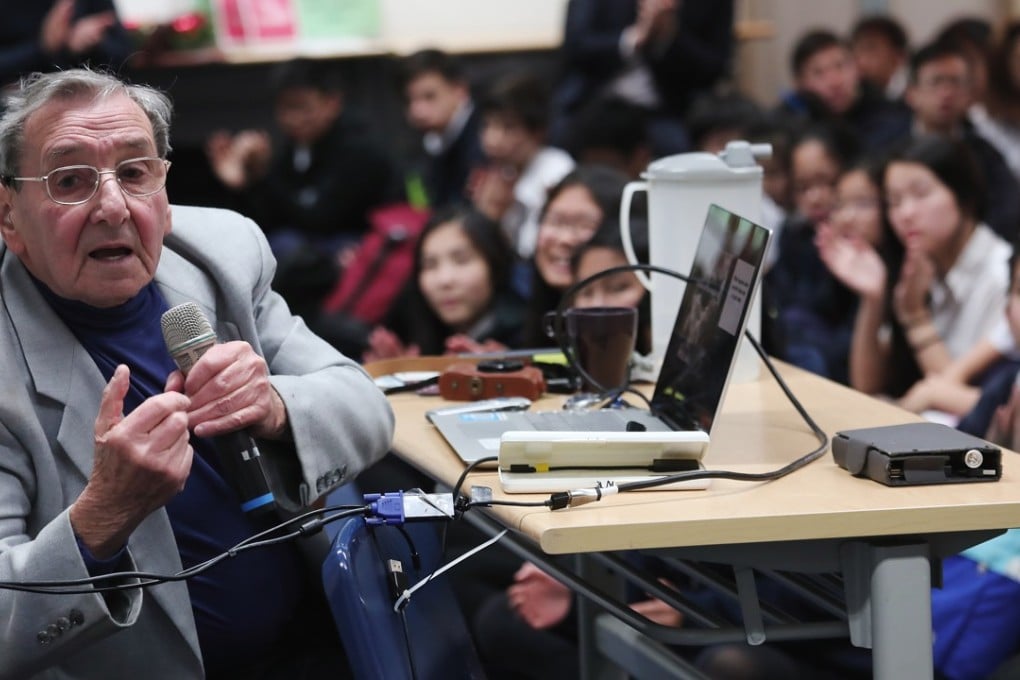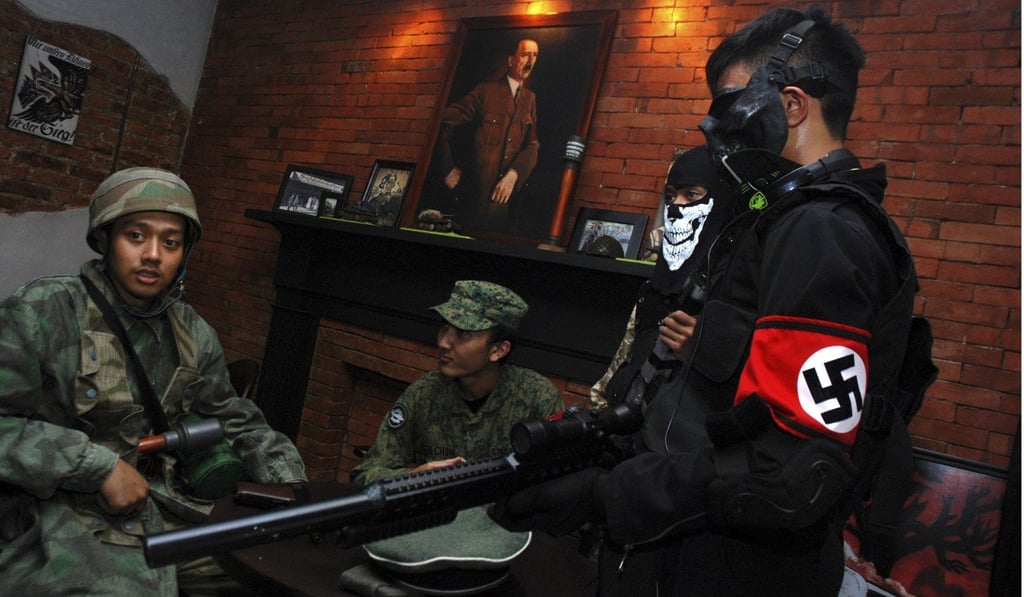Holocaust survivor ‘understands’ Asian fetish for Nazi uniforms – but the underlying evil should never be forgotten
Werner Reich visited Hong Kong to tell students about his experience in concentration camps, and accepted the fascination some Asian countries have with Nazi regalia as they have no idea of the horror they caused

It’s Werner Reich’s first trip to Hong Kong – and Asia – but he has been too busy to see the sights. The 90-year-old from Smithtown, New York was in Hong Kong to tell rapt audiences, young and old, about how he survived the Holocaust.
“I’ve met some very, very nice people,” says Werner, who was brought here by the Hong Kong Holocaust and Tolerance Centre. “Most of the students I met here behave very civilised.”
Son of German artist and Holocaust survivor says thank you to Shanghai with his father’s work
Maybe he should spread his important message to other parts of Asia. There have been regular controversies around the region in recent years, in Taiwan, Indonesia, South Korea, Thailand and India. They have included cases of young people wearing Nazi-like uniforms for cosplay events – where participants wear costumes and fashion accessories to represent a specific character – girl bands dancing in militaristic uniforms, and Nazi-themed cafes and bars. You would expect a Holocaust survivor to be outraged.
When asked, Reich pauses for a moment, thinking of the best way to answer. “Oddly enough I can understand the interest. I have no argument with that,” he says.
“They have a fascist picture of wonderful uniforms, discipline, the uniformity of marching, saluting … but what they are missing is what goes beyond that vision. They don’t see the destruction of parents, teachers, homes, culture and education,” he says.

One Taiwanese group was quoted saying they felt it was acceptable to dress up as Adolf Hitler because, in the end, he failed. Reich says: “Hitler did not fail – he succeeded fabulously. Eighty million people died. People can’t imagine what the hell 80 million people is. Whole towns were destroyed. People were forced to escape to other countries to start a new life.